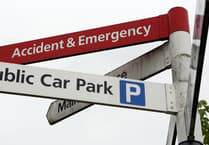AS the bank holiday looms, Devon and Cornwall Police are warning of an increased chance of unlicenced music events, more commonly known as raves or ‘free parties’.
The police are working with both partners and local residents to make potential locations in the county unattractive to rave organisers.
Each year, bank holiday weekends sees an increase in the possibility of a rave in Devon, with Summer Bank Holiday Monday 28 August particularly susceptible.
Earlier this year, a large rave was disbanded by police in Haldon Forest.
Uniformed and plainclothes officers are regularly patrolling areas which have been identified as possible targets of rave organisers and officers are also working with farmers and landowners to secure sites and make them unsuitable locations.
A spokesperson for Devon and Cornwall Police stated: ‘We know the misery raves can cause to nearby residents, with loud music keeping people awake for hours on end.
‘It also has a significant impact on livestock and wildlife, and often participants leave the land badly damaged.
‘We would like to encourage our local communities, including farmers and landowners, to take proactive and pre-emptive measures to help target harden their land and open spaces and secure their property to make it an unattractive option for organisers.
‘These measures can be as simple as ensuring padlocks on gateways are serviceable, broken fences or open gateways are closed and any buildings are properly secured.’
Communities can help to be the eyes and ears of the police, by reporting the following: An unusual increase in traffic, advertisements for raves on social media, vehicles carrying sound and lighting equipment and large gatherings of people in unusual areas.
The police spokesperson added: 'If they see this, they should call us on 101 or, if they see organisers setting up equipment, 999.
'People can also anonymously report observations to Crimestoppers either via their website or by calling 0800 555 111.
'Our aim is to deter organisers of unlicensed music events from choosing locations within Devon and Cornwall due to the noise and disruption they cause to both people and wildlife in the area.'


